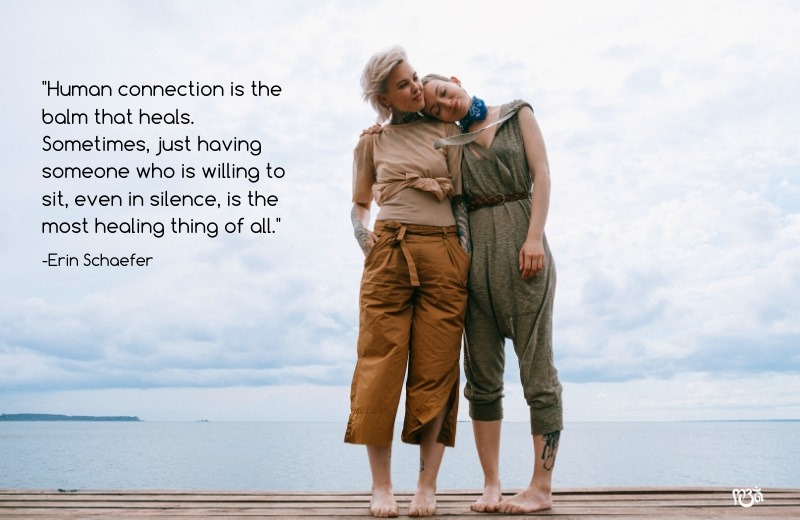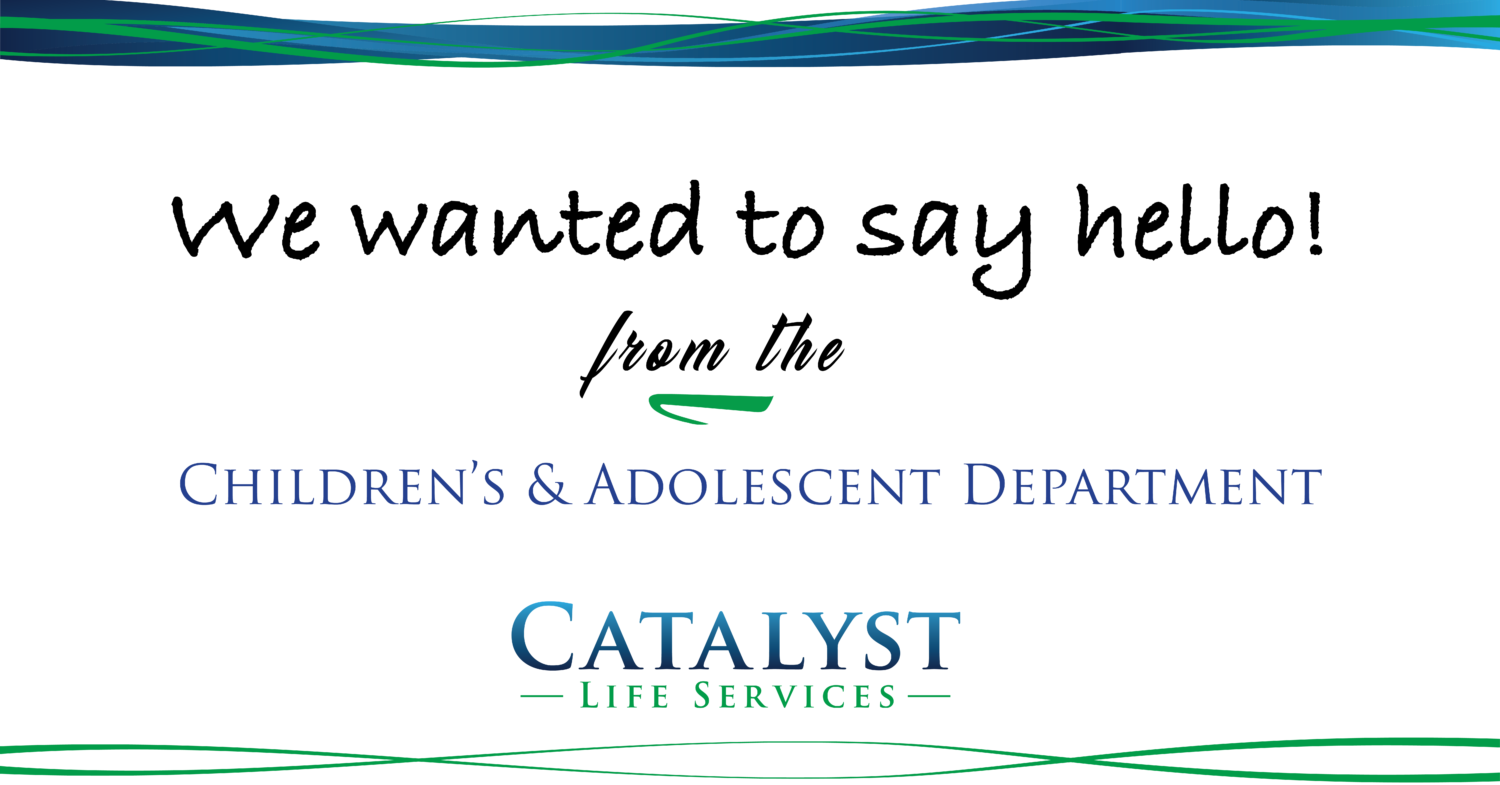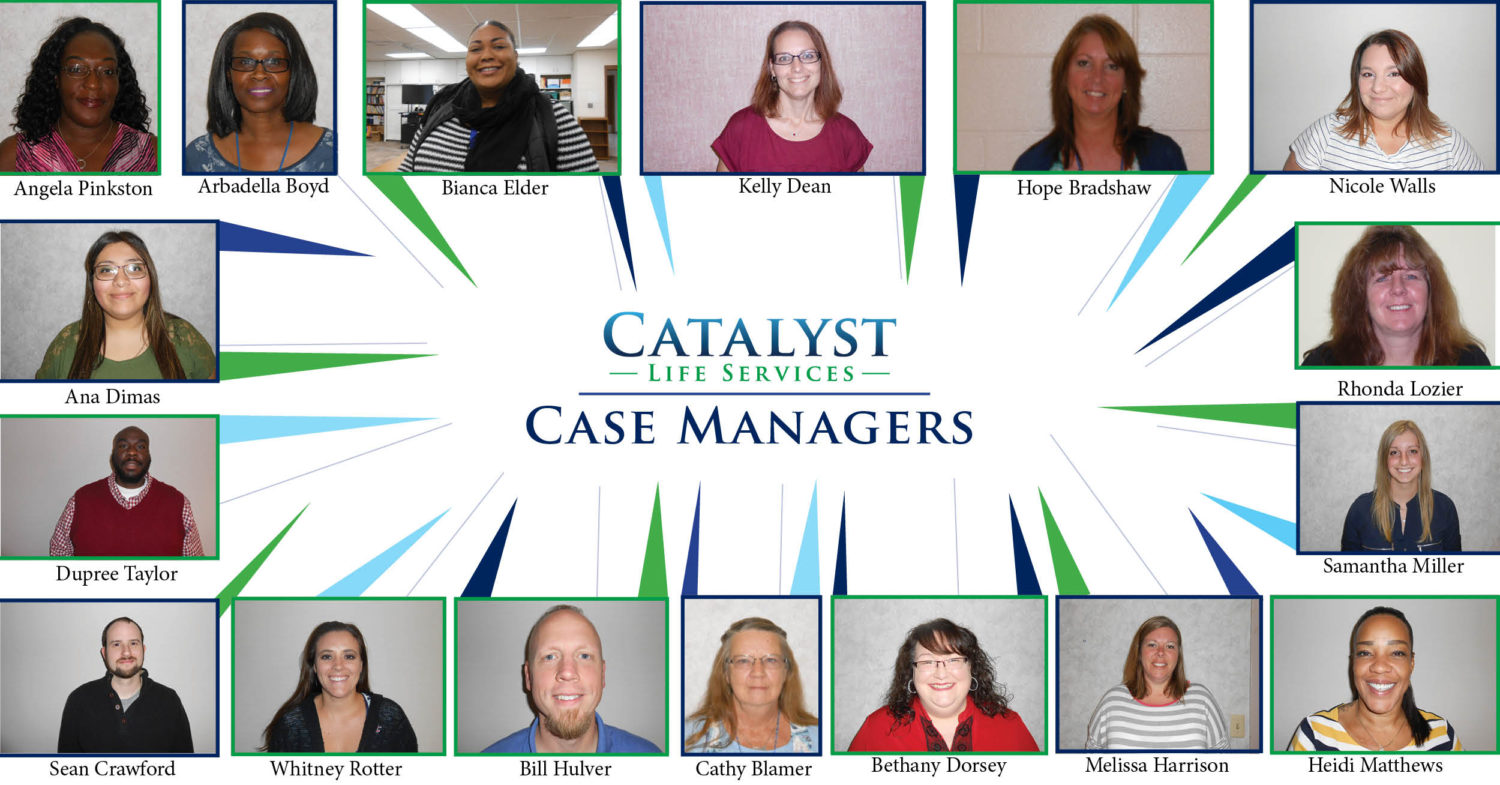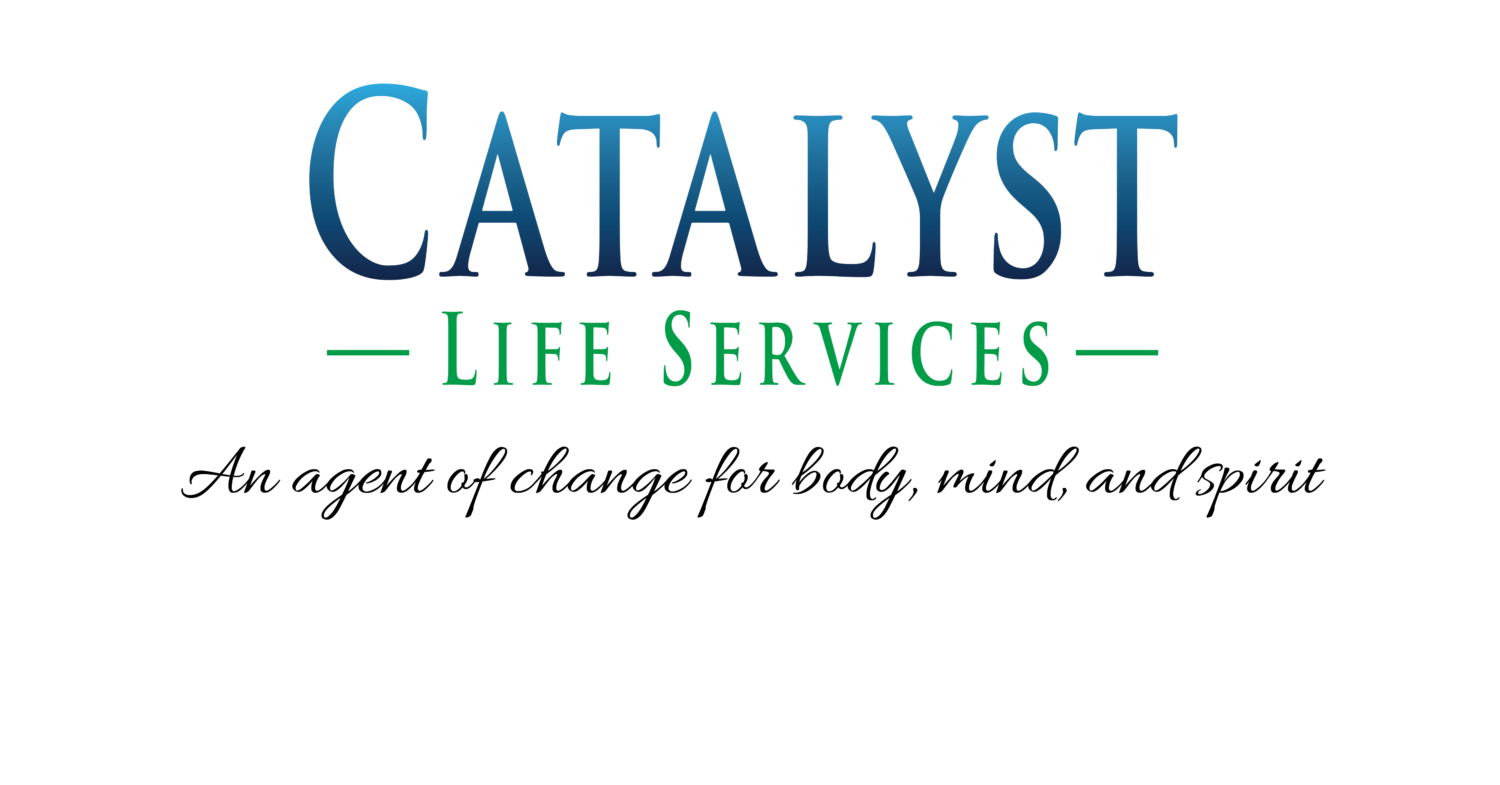
Did you know?
Mental Health Court is a program through the court system that was established for clients with mental health diagnoses that get into legal trouble. Mental health court assists them getting into treatment to become stable and build a rapport to hopefully keep them in treatment once successfully graduated from the program to prevent recidivism.
Catalyst has a team to support individuals in the court hearings and treatment team meetings and assists in coordinating the treatment services at Catalyst for those in Mental Health Court.
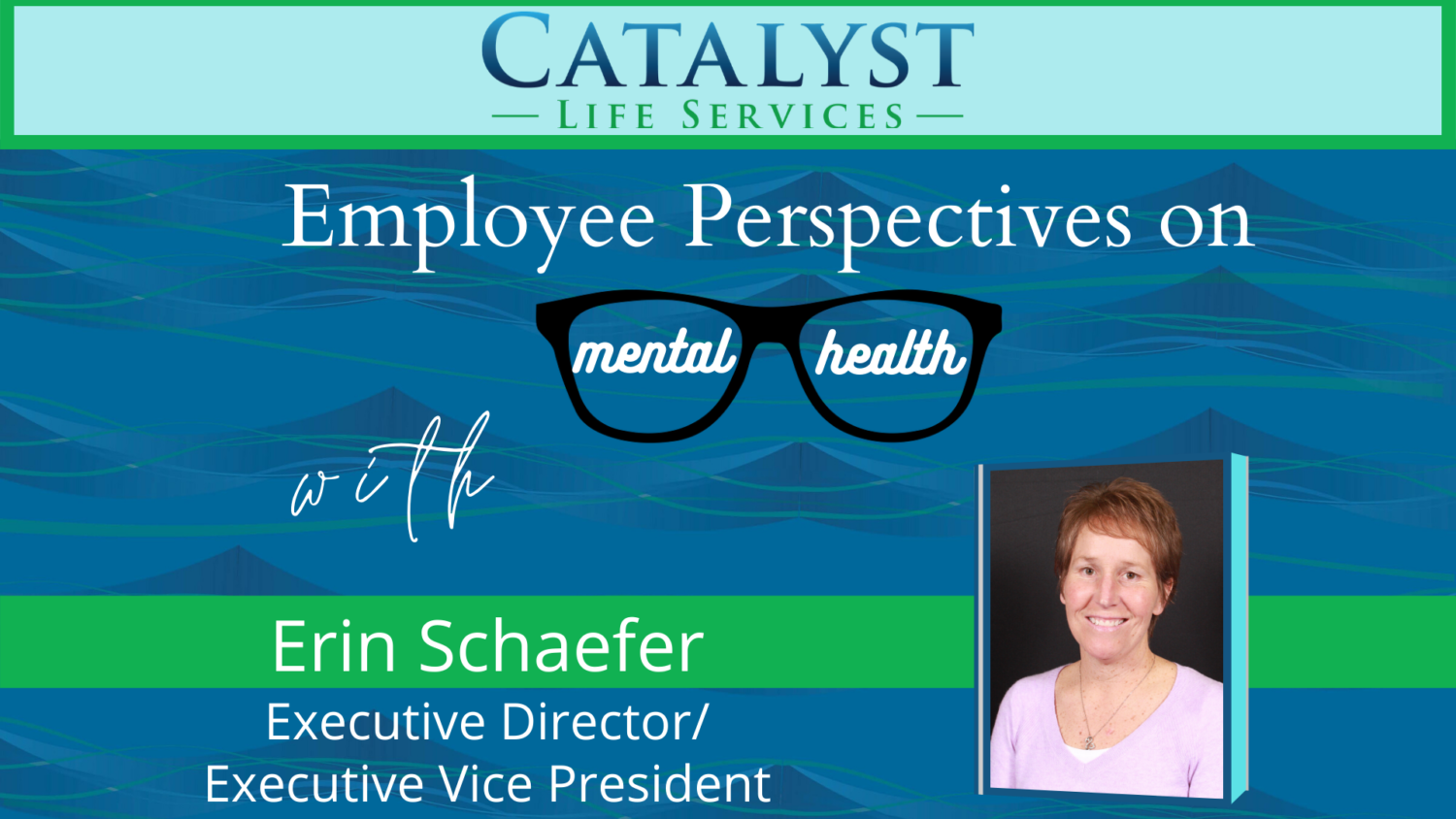
Q&A with Erin
1. What is your occupation, title and how long have you worked at Catalyst?
Executive Director/Executive Vice President, I have been employed by Catalyst for the last 20 years (14 of them full-time).
2. Can you briefly describe the services you are over?
I oversee all mental health services for the agency, as well as compliance, Forensics, and crisis services.
3. Mental Health and the jails, this is something many people don’t think about. Do you have any information about this?
Nationally, it has been reported that 20% of the population in jails and prisons is severely mentally ill (ref: Torrey EF, Zdanowicz MT, Kennard AD et al). The treatment of persons with mental illness in prisons and jails: A state survey. Arlington, VA, Treatment Advocacy Center, April 8, 2014.). This means about 350,000 people in jails and prisons are identified as severely mentally ill. If there are approximately 50,000 psychiatric beds in the United States, then you can see how upside down this statistic is. We are not treating mental illness; we have criminalized it.
4. I believe one of the least known services we do are the ones in the jails, can you explain these services and how they help?
We have staff who are on site at the jail for 30 hours per week, providing mental health support, referrals to services, and connecting people to drug & alcohol treatment. This has been invaluable in helping to get people the treatment they need when they are ready to receive it. This also helps to stabilize some of our most severely mentally ill who end up in jail, as they get medications started immediately upon incarceration. Staff in the jail treat people as human beings, which can make all the difference. Regardless of your location and regardless of what might have happened, we are all human beings and deserve to be treated as such.
5. Being in the mental health field for the past 25 years, can you speak to the stigma surrounding mental health? Has it changed over the years?
We are both less able to talk about mental health and more able to discuss it. It seems we can acknowledge it exists – we talk about it on TV shows, we address it on social media, and we have hashtags to trend it in our awareness. However, it is still extremely difficult for people to admit it for themselves and speak it out loud. To admit someone struggles with mental health issues seems to admit “weakness”, and nothing could be further from the truth. When we admit our struggles, we actually allow ourselves to be vulnerable which softens others to us and brings people toward us – exactly what one needs when struggling emotionally! It is so important for us to speak of our own struggles so others know it is ok for them to do so as well.
6. What are some applicable ways we can fight against the negative stigmas associated with mental health treatment and MI?
Talking about our own experience, sharing common stories, and letting people know we are here to help and support them. Sometimes the best thing we can do for someone who is struggling is just to be present with them. No words need to be exchanged; just being willing to sit with someone who is in pain is enough to let them know they are not alone. Like the hashtag for the pandemic says, we are #InThisTogether.
Click the picture below to read about 5 ways to decrease the Stigma of Mental Health by Erin Schaefer on Mind Body Align’s Blog.
In this time of the COVID-19 pandemic, the Child and Adolescent Department from Catalyst Life Services wanted to put together this fun video to remind you about the importance of mental health for Mental Health Awareness Month!
Click the picture below to view our video!
Click the picture below to view our appreciation for all of our case managers!
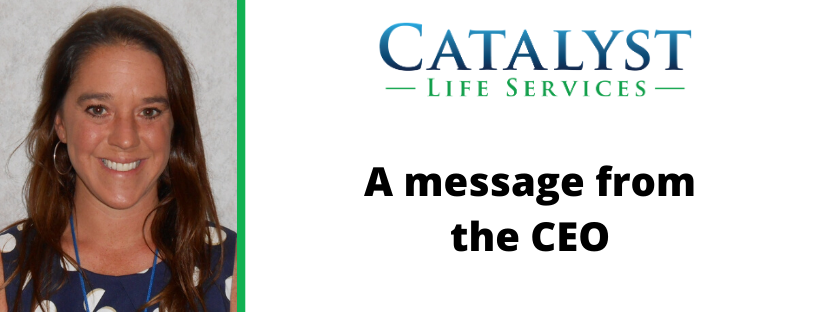
Some days it seems hard to believe that it’s been almost 3 months since COVID-19 altered so much of our world and what we have all come to know as normal. Not just in the work place but in each of our daily lives. Other days it feels as if it’s been so much longer. I truly believe, for similar or differing reasons, we have all felt stress, pressure, frustrations, and uncertainty at times. One thing that I am certain of today, is that Catalyst is filled with amazing, committed, and loyal employees.
As the end of Mental Health Awareness month nears, there is strong evidence, as we navigate through such unprecedented times, the importance of mental health awareness each and every day. Please don’t forget to take care of yourself. If you are still struggling or ever need someone to reach out to – we are here 24/7 through our helpline (419-522-HELP) to help connect you to our services.
I wish you all a Happy, Healthy and Safe Memorial Day, and I want to give thanks to all present and past servicemen and women who have served our country.
With gratitude,
Laura Montgomery, CEO
Thank you so much to the following organizations/individuals whom have helped us out with donations during this time!

